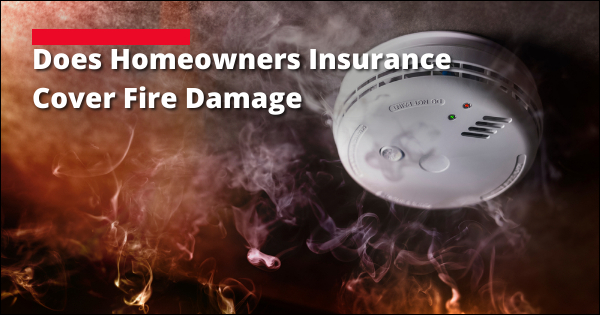A house fire can be a devastating experience that can leave homeowners feeling helpless and uncertain about what comes next. Not only can fires cause significant damage to a home and its contents, but they can also result in expensive repair bills and, in some cases, displacement. In these situations, homeowners insurance can provide much-needed financial support. In this blog post, we’ll discuss the types of fire coverage provided by homeowners insurance so you’re well-prepared when disaster strikes.
Does homeowners insurance cover fire damage?
Yes, homeowners insurance typically covers fire damage. However, the exact coverage and terms of the policy will depend on the individual insurance provider and policy. Some policies may include exclusions or limitations on coverage for fire damage, while others may offer more comprehensive coverage. Homeowners must review their policy carefully and speak with their insurance provider to fully understand their coverage.
Types of home insurance fire coverage
There are two main types of fire coverage provided by homeowners insurance: dwelling coverage and personal property coverage. Dwelling coverage typically covers the home’s physical structure, including the walls, roof, and foundation. In contrast, personal property coverage protects the home’s contents, such as furniture, clothing, and electronics.
In addition to these two types of coverage, homeowners insurance may also provide coverage for additional living expenses. This coverage can help cover temporary housing and living expenses if the home is deemed uninhabitable due to fire damage.
Types of fires covered under homeowners insurance
While homeowners insurance typically covers fire damage, some types of fires may not be covered. For example, intentional fires like arson are typically not covered by insurance. In addition, fires that result from negligence or illegal activities may also be excluded from coverage.
However, most insurance policies cover fires that result from common causes such as electrical malfunctions, cooking accidents, and natural disasters. Homeowners may also consider purchasing additional coverage for wildfires or other common natural disasters in their area.
It’s important to note that homeowners insurance policies may have different coverage limits for fire damage. Homeowners should review their policy to understand the maximum coverage available and consider purchasing additional coverage if necessary. In the event of a fire, homeowners should take immediate action to ensure their safety and minimize damage to their homes. This may include calling the fire department, evacuating the house, and documenting any damage for insurance purposes.
In general, insurance typically covers fire damage, but the coverage and terms of the policy will depend on the individual insurance provider and policy. Homeowners should carefully review their policy and speak with their insurance provider to fully understand their coverage. Additionally, homeowners should take steps to minimize the risk of fires in their homes, such as regularly testing smoke alarms and avoiding hazardous activities that could lead to fires. By taking these steps and having adequate insurance coverage, homeowners can protect their homes and finances in the event of a fire.
Have further questions about coverage? Contact us at Hammer Restoration today.

